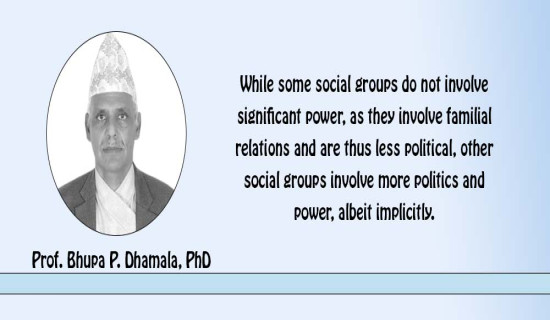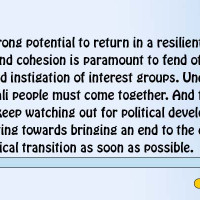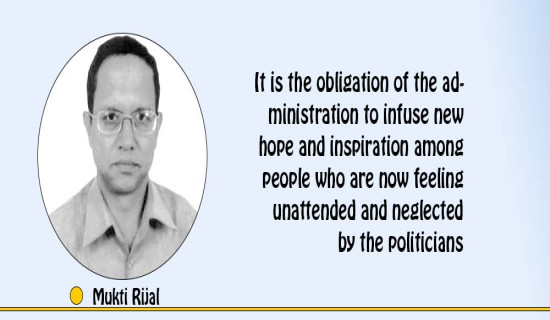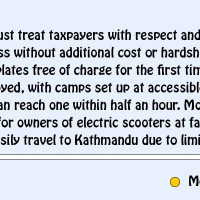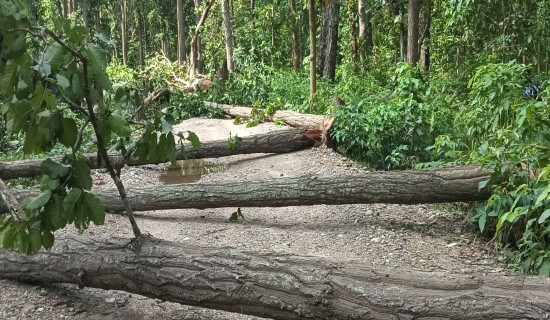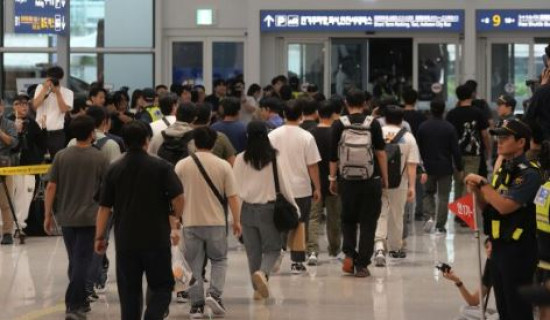- Saturday, 13 September 2025
Taking Lesson From Bangladesh Upheaval
The future of Bangladesh remains uncertain after the resignation of Sheikh Hasina - once famed as the Iron Lady of Bangladesh - amidst violent protests waged by student groups against the long prevailing job quotas system. The protest that began in July with hundreds of students demonstrating against the controversial quota system ultimately snowballed into anti-government demonstrations also fueled by economic woes and heightened resentment against authoritarianism of Hasina’s Awami League Party. The violent clashes led to the death of around four hundred people and toppled more than 15 years of her rule.
Bangladesh now has interim government formed under Nobel Laureate Mohammad Yunus with three months to restore law order and prepare for general elections. Yunus, however, needs to fix many things, including years of flawed system and mounting geopolitical pressure before he can actually conduct free, fair and participatory elections on time. Bangladesh's political upheaval might have wider implications for the regional politics, economy and social stability in South Asia in the days to come. The region has already been facing a wave of unrest and political instability in recent years.
Regional implications
Not long ago, fed up with mounting crisis and ill governance, people took over president’s office and residence and toppled the then regime in Sri Lanka. In 2021, democratically elected government, led by Aung San Suu Kyi, was overthrown by the military in Myanmar while the collapse of the Afghan government in 2021 has resulted in a grave humanitarian crisis. In the midst of these crises, discussion and concerns are budding among Nepali political and media landscape on whether Nepal could face a similar situation owing to mounting public frustration and discontent due to the persistent economic crisis, musical chair of power politics, lack of jobs, and mass exodus of youths and students seeking opportunities abroad. There are certainly lessons to be learned for Nepal, which we discussed below.
Bangladeshi people took to streets, demanding quota reforms in 2018 for four-months. Bangladesh has 56 per cent of government positions reserved under various quotas, including 30 per cent for the descendants of freedom fighters from the 1971 War of Independence. Given this scenario, many university graduates only witnessed limited jobs constrained by the quota policy, deeply frustrating them. This year’s agitation was momentous in its form and outcome. Students from both public and private universities and colleges joined the anti-establishment movement. However, at the backdrop, there also lay a stack of grievances against the Bangladeshi government owing to bad governance and democratic deficit. Lack of economic opportunities, high rate of unemployment, unfair distribution of economic dividends and soaring inflation were some major sources of tension.
The Awami League was allegedly involved in rampant corruption, human rights violations, nepotism, bribery and money laundering. The Hasina government failed to address the growing demands and discontent of its citizenry. Over the last two decades Bangladesh was able to emerge as one as one of the fastest growing economies in the world. But, the benefits of economic growth were unevenly distributed, with millions of young people getting unemployed. In Nepal too, people are quite concerned about the reservation system primarily because it is supposed to undermine the essence of equality amongst people of different walks of life. Secondly, quotas have allegedly been hijacked by the ‘creamy layers’ of different cluster groups, thus encouraging incompetence and tokenism in the administration.
The power of the people is an unshakable force. Hasina’s downfall is the testimony to this fact. She repeatedly ignored the aspirations of her people and paid no heed to their discontent. What she only focused on was her prolonged stay in power to serve her vested interest and those of her stalwarts. Like Bangladesh, Nepal is also grappling with constant political instability, mounting public frustration over the economic crisis, lack of jobs, mass exodus of youths, corruption, and self-centeredness.
Lesson
These incidents from Bangladesh, Sri Lanka and elsewhere also emulate the rising trends of youth voices and aspirations for political stability, transparency, accountability, and opportunities and this should caution us on time. It’s high time that our politicians became mindful of the reactions and resentments of the general public. Most importantly, our leaders must timely comprehend the fact that their credibility largely depends on their delivery of just governance. Nepali people have demonstrated their dissent time and again, demanding rule of law, good governance, employment opportunities and a decent and dignified living.
Time will show what lies ahead of Bangladesh, its people, its regional relations and the overall South Asian geopolitics. What we should, however, be mindful of is that political system and governance always needs internal legitimacy. If that becomes dysfunctional, it breeds widespread frustrations that can eventually become the source of spiraling unrest. Learning a thing or two from what went wrong in other countries can serve as a cautionary tale for the political leadership.
(The writer is a university lecturer, development professional. bhatta.meena@gmail.com)



